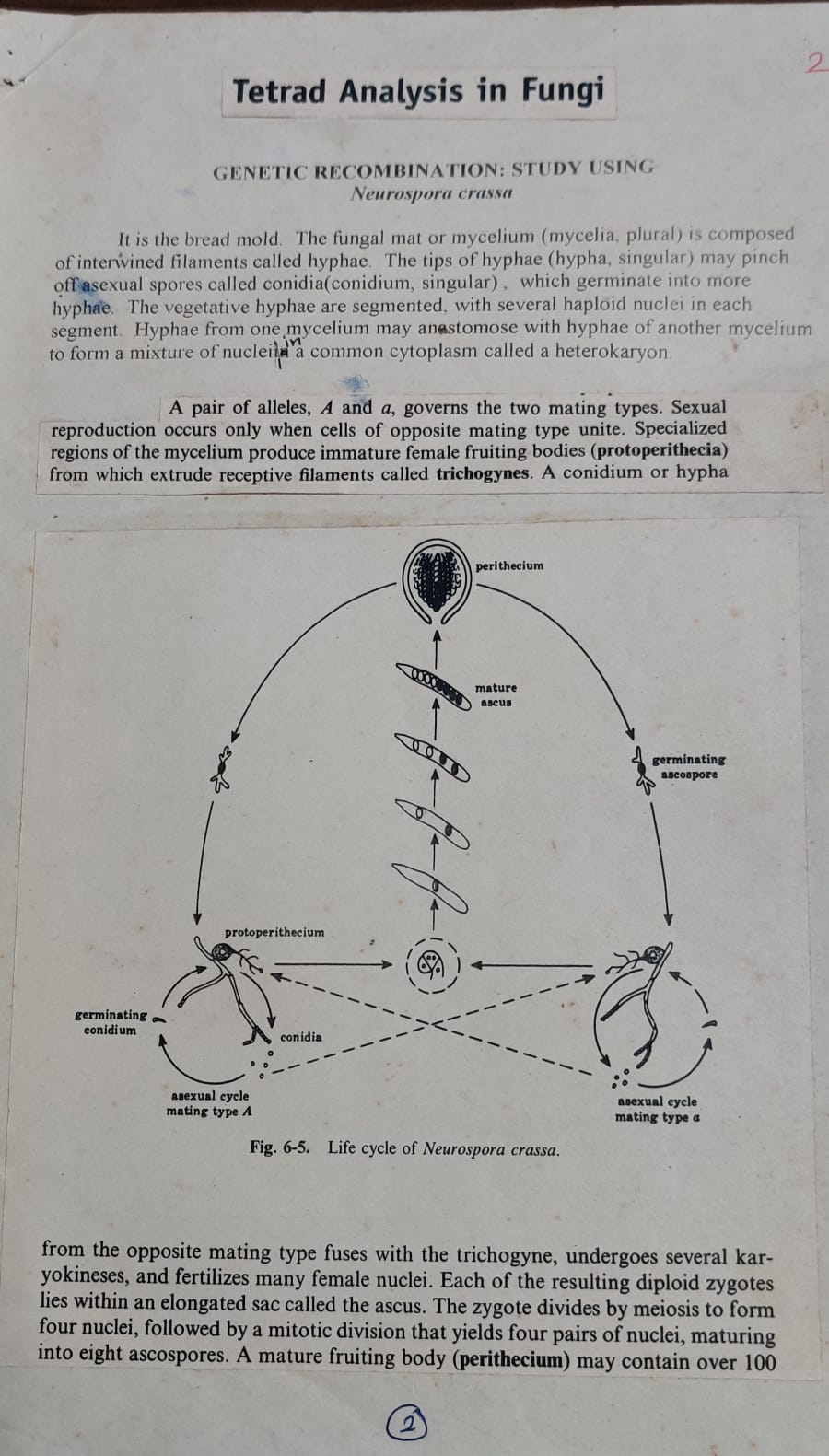What is the genetic recombination process in Neurospora crassa and what are the key structures involved in its life cycle?

Understand the Problem
The question concerns the genetic recombination and life cycle of the fungus Neurospora crassa, specifically focusing on its sexual reproduction process and the structures involved.
Answer
Genetic recombination in Neurospora crassa involves sexual reproduction with structures like hyphae, protoperithecia, trichogynes, and asci.
Neurospora crassa undergoes genetic recombination through sexual reproduction involving the fusion of cells of opposite mating types. Key structures include hyphae, protoperithecia, trichogynes, and asci, where meiosis occurs, producing ascospores within the perithecium.
Answer for screen readers
Neurospora crassa undergoes genetic recombination through sexual reproduction involving the fusion of cells of opposite mating types. Key structures include hyphae, protoperithecia, trichogynes, and asci, where meiosis occurs, producing ascospores within the perithecium.
More Information
The sexual life cycle of Neurospora crassa is crucial for genetic analysis due to the organized meiotic product alignment in ascospores. It is also used to study genetic phenomena like crossing over.
Tips
Common mistakes include confusing the roles of different structures and misunderstanding asexual versus sexual reproduction processes.
Sources
- Neurospora crassa - Wikipedia - en.wikipedia.org
- Neurospora crassa Life Cycle - Embryo Project Encyclopedia - embryo.asu.edu